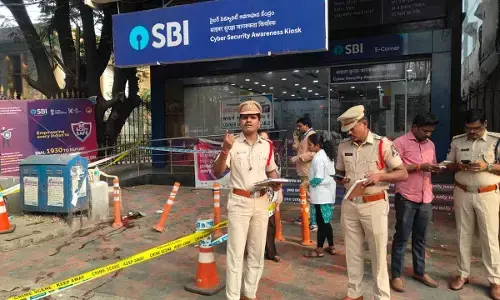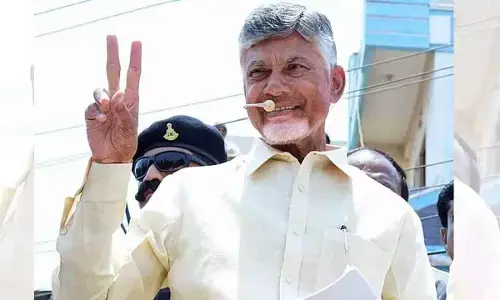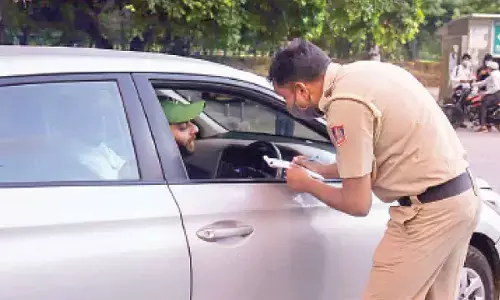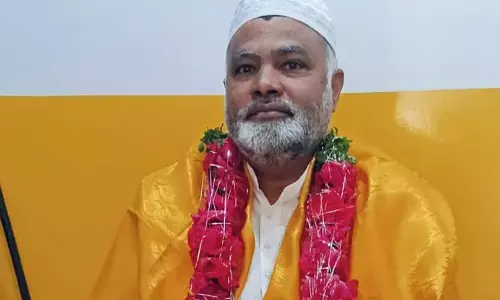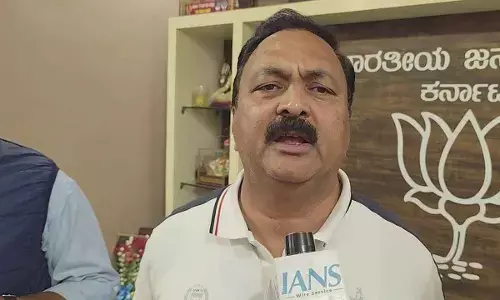Rana’s extradition: When Oppn chooses outrage over justice
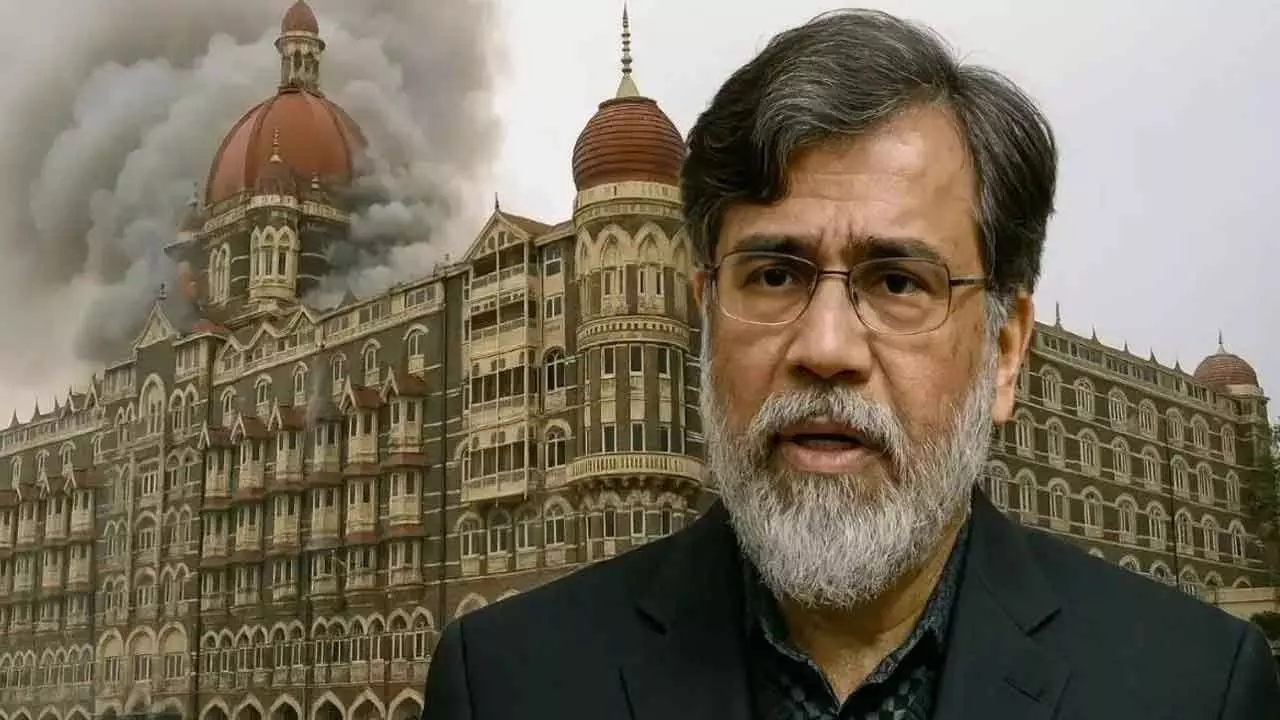
After more than a decade of diplomatic and legal efforts, Indian agencies have finally secured custody of a man believed to be instrumental in planning the bloodbath that claimed 166 lives, including those of police officers and National Security Guard (NSG) commandos. The opposition’s refusal to support Rana’s extradition speaks volumes—not about the government’s intentions, but about their own moral bankruptcy.
The long-awaited extradition of Tahawwur Rana—accused of complicity in the 26/11 Mumbai terror attacks—should have been a moment of solemn satisfaction for the nation. After more than a decade of diplomatic and legal efforts, Indian agencies have finally secured custody of a man believed to be instrumental in planning the bloodbath that claimed 166 lives, including those of police officers and National Security Guard (NSG) commandos.
Yet, what should have united the country in pursuit of justice has instead been reduced to yet another cynical episode in the opposition’s never-ending drama of political outrage.
The Congress party and its allies in the INDIA bloc have not just questioned the timing of Rana’s extradition—they’ve cast aspersions on the very process. UBT leaders are making wild claims: that Rana will be hanged before the Bihar elections, that the BJP is celebrating a “Rana Festival,” and that this entire development is part of a political gimmick. Is this what opposition politics has been reduced to in India—mocking the success of extradition of a man linked to one of the deadliest terror attacks on Indian soil?
Former UPA Minister Prithviraj Chavan demanded a “fair trial,” as though Indian courts are not capable of upholding the rule of law. What exactly is being implied here—that India cannot guarantee due process? Or is this yet another veiled attempt to create doubt around judiciary, purely because the political climate doesn’t favor the opposition?
P Chidambaram, never one to let an opportunity for self-congratulation go waste, wants credit for the UPA. Where was this energy when Rana was first arrested in 2009? Where was this urgency when the Air Force, as former Chief B.S. Dhanoa has now revealed, was ready to strike Pakistani terror camps after 26/11, only to be restrained by the very government that today claims moral high ground?
The opposition’s reactions are not just inappropriate, they are disgraceful. They’ve consistently demonstrated more sympathy for figures like Yasin Malik, and now Rana, than for the families who lost everything in the 26/11 attacks. When the time comes to stand with victims of terror and with the forces that protected this nation, the opposition instead chooses to play politics, question motives, and divert attention.
Their latest line of defense? “Why not bring back Nirav Modi, Lalit Modi and Mehul Choksi instead?” This whataboutery is both illogical and deeply irresponsible. Since when did the pursuit of one criminal preclude the pursuit of others? Do they not understand the legal and diplomatic complexities involved in each case, or are they just counting on public ignorance to fuel their narrative?
What’s more dangerous is the precedent they are setting—every move against a terrorist or anti-national element is now automatically labeled “electoral strategy.” Has the opposition become so hollow in its convictions that even justice must wait for a convenient political window? Mehul Choksi has been arrested in Belgium, but still the opposition has no word of appreciation. Is their contempt for the government so deep that they are willing to sacrifice national interest at the altar of electoral arithmetic?
Let’s set the record straight. Extradition proceedings against Rana began formally in 2020 under the bilateral treaty with the U.S. In 2023, a U.S. district court approved his extradition. The delays that followed were procedural, involving appeals and diplomatic coordination. To suggest that India has some magical sway over the American judicial system is not just absurd—it’s dishonest.
Thirteen years ago, when Narendra Modi was not yet Prime Minister, he had condemned the U.S. decision to free Rana and vowed that Indian laws would one day hold him accountable. Today, that promise has come full circle. And rather than applaud a significant milestone in the fight against terror, the opposition is too busy looking for ways to spin it into another talking point.
Let’s call this what it is: an opportunistic, self-defeating, and morally bankrupt response from an opposition that has lost its sense of duty. Instead of standing by the government and honoring the memory of the 166 victims, they are indulging in reckless grandstanding.
This isn’t political opposition, it’s institutional sabotage. In their desperation to attack the government, they are undermining national unity, mocking justice, and demoralizing the security agencies who workday and night to keep the country safe. And ironically, this is the same opposition that routinely accuses the government of being soft on accountability.
Yes, national security and terror were part of political narratives before—Balakot being a prime example. But to argue that political benefit negates the legitimacy of justice is an absurd and dangerous standard. Justice delayed is still justice delivered, even if it happens near an election.
Victims of 26/11 have waited over 15 years. Their loss, their grief, their unanswered questions—none of these deserve to be trivialized by the opposition’s obsession with optics. If the Congress and its allies had an ounce of political maturity or moral clarity, they would have stood shoulder-to-shoulder with the government and said: justice has been served, and we will see it through.
But instead, they’ve chosen to side with skepticism over solidarity, with narrative over nation, with expediency over ethics.
In a democracy, opposition is essential. But what we are seeing today is not principled opposition, it is a disgraceful mockery of justice. The opposition’s refusal to support Rana’s extradition speaks volumes—not about the government’s intentions, but about their own moral bankruptcy.
Some issues are above politics. Terrorism is one of them. The opposition would do well to remember that.








